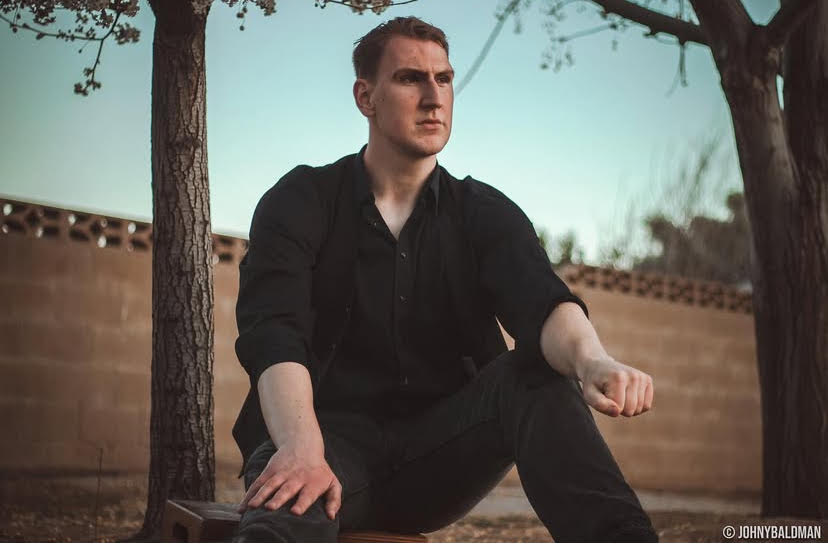We were lucky to catch up with Jesse Baxter recently and have shared our conversation below.
Hi Jesse , great to have you with us today and excited to have you share your wisdom with our readers. Over the years, after speaking with countless do-ers, makers, builders, entrepreneurs, artists and more we’ve noticed that the ability to take risks is central to almost all stories of triumph and so we’re really interested in hearing about your journey with risk and how you developed your risk-taking ability.
The first and last lesson of every higher education program in the arts is this: Take Risks. When I heard these words upon graduating Acting Conservatory in 2019, I never fully grasped that they applied to more than just acting. It would take four years of growth as I finished my degree—years filled with acting, creating, and learning—before I realized that risk-taking would be essential in every aspect of my life.
During my time in Acting Conservatory, I often felt emboldened to explore writing and directing, encouraged by the creative environment around me. My affinity for classical theatre led me to write genre-heavy plays reminiscent of 19th-century romances and to direct Shakespeare for the first time, staging a 90-minute workshop production of Macbeth. I was certainly ambitious, but I was also protected by a safety net—a supportive structure where resources and guidance were readily available. I was taking artistic risks, yes, but not yet practical ones.
It wasn’t until my time in film school—around 2021–2022, after transferring to a university near Long Beach—that I began to understand that I couldn’t be passive about the trajectory of my career. I continued acting in theatre, playing characters like Pride and Prejudice’s Mr. Darcy and returning to Macbeth as the title role in my final semester. Still, with my wide-ranging interests in film, theatre, and entertainment, I couldn’t easily predict my next step. My mentors offered encouragement, with the wisdom that being a hyphenate artist meant forging my own path would take time, initiative, and self-created opportunities.
When I graduated from my film program in late 2022, the industry ground to a halt amid the tandem Writers and Actors’ Strikes of 2023. I held a film degree just as the entire industry froze. As a newly married recent graduate, I knew that working part-time at the local liquor store was not a long-term solution. The comfort of academic structure was gone, and for the first time, risk-taking applied as much to my personal and professional life as it did to my creative projects.
Drawing from our shared experiences attending plays in unconventional venues across Los Angeles, my wife Cassidy and I began envisioning a new kind of theatre. This dream pushed me to take the biggest risk yet: founding our own theatre company—first Wine and Revelry Theatre, eventually reorganized as the non-profit Revelry Theatre Group. I had no prior experience starting a company, but I learned by doing—and quickly. Our debut production was no ordinary Shakespeare play; Cassidy’s vision for A Midsummer Night’s Dream: The Fairyland Experience involved a fully immersive, site-specific adaptation staged at a winery near Redlands. While we both embraced significant risks, Cassidy’s innovative approach to immersive storytelling revealed to me what true artistic risk could look like.
In that production, I served as Associate Artistic Director, Production Manager, and actor, building an entirely new theatrical experience from the ground up. Since that first venture, I’ve taken on full leadership as Artistic Director alongside Cassidy, guiding our company through multiple productions. Our mission remains rooted in experimentation: this year, we partnered with MacLeod Ale Brewing Co. in Van Nuys to transform their warehouse into a theatrical venue for The Tempest. While my direction of The Tempest took a more conventional shape, we continued to challenge audience expectations through environmental staging and a deliberate subversion of the fourth wall.
And yet, after years of expanding my creative and professional horizons, I find myself returning full circle to where I began: acting.
“Art imitates life” is just as familiar a phrase as “take risks” in the Acting Conservatory, and I’ve come to understand how deeply my life experience informs my work as an actor. Every character presents its own unique challenges, but none quite like Hamlet—whose every action feels like a gamble, driven by joy, frustration, and relentless introspection. Taking on this dream role now, at this stage of my journey, feels especially meaningful. It is a privilege to approach Hamlet not only as an actor, but as someone who has built a company, learned leadership through uncertainty, and embraced risk in its fullest sense.
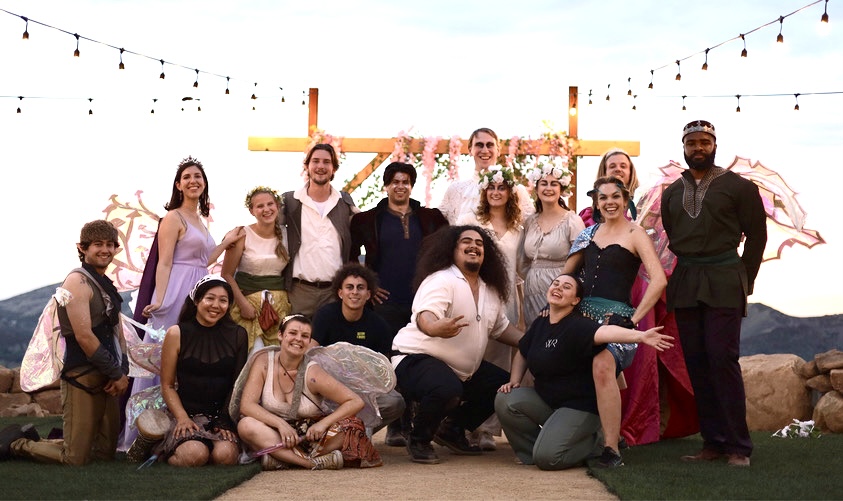
Thanks for sharing that. So, before we get any further into our conversation, can you tell our readers a bit about yourself and what you’re working on?
I am an actor, director, and arts administrator based in Los Angeles. In 2023, my wife Cassidy and I founded Revelry Theatre Group, a company devoted to producing classical theatre in ways that are both innovative and communally accessible. This year, we partnered with MacLeod Ale Brewing Co., a privately-owned brewery in Van Nuys, to produce The Tempest this past April and our upcoming production of Hamlet this October.
I’ve been fortunate to portray many dream roles, both Shakespearean and otherwise, but playing Hamlet feels uniquely rewarding. While I had thought about the role before, it was during my final semester at Biola University—when I played Macbeth—that Hamlet came back into focus for me. I remember encountering Macbeth’s famous soliloquy:
“… that but this blow | Might be the be-all and the end-all here…”
and feeling the resonance between Macbeth and Hamlet: two men grappling with the weight of their choices. Both consider the cost of their actions — Macbeth in the material realm, Hamlet in the spiritual. For both, the struggle to move forward in the face of moral consequence is paralyzing. That realization planted the seed that playing Hamlet might one day be my own goal.
Ironically, at the time, I wasn’t sure I’d ever get the chance. Back in my Acting Conservatory’s Second Year Shakespeare class, we were assigned to choose a character to study and devise work from. Torn between Hamlet and Iago, I ultimately chose Iago, largely because I felt intimidated by Hamlet and doubted whether I could fit the casting type. Yet even then, I sensed a pull toward the role I was avoiding.
Since starting Revelry Theatre Group, I’ve had the gift of playing roles I might not otherwise have been cast in: Lysander in A Midsummer Night’s Dream, Mercutio in Romeo and Juliet, and Silvius in As You Like It. Exploring the wit, passion, and humanity of these characters has emboldened me to take on this next challenge. For any actor hesitant to pursue a role due to type, I would encourage them to press on. If a role calls to you, it likely means you have something unique to bring to it.
Hamlet is often described as Shakespeare’s most human character, which, of course, creates enormous pressure for any actor. What excites me most is not the expectation of finding answers, but living inside Hamlet’s struggle to express what he intuitively knows to be true. For all his eloquence, Hamlet famously becomes his own obstacle. Some describe him as indecisive; I disagree. I believe Hamlet is someone for whom the words available to him are never quite enough to articulate what he fully feels. As an actor working with Shakespeare’s richly text-driven work, that tension — between what can be said and what remains unsaid — is endlessly rewarding.
This production also explores the dangerous question: what does it take to make a lie true? Hamlet’s relationship to that question creates the play’s central conflict, and I’m eager for audiences to witness that struggle unfold.
I believe now is a particularly resonant time to stage Hamlet, because it forces us to consider the nuances of how we respond to injustice. When we witness wrongdoing, our instincts may be immediate, visceral — but how we act on those feelings matters. Hamlet’s responses to the King’s crimes, to his mother’s complicity, to the weight of public perception — these decisions matter deeply to him. His concern for how his story will be told may be the most human thing about him: the tension between knowing what is right, and fearing what comes after, both “in heaven and on earth.”
Like Hamlet, we are called to remain vigilant: watching both the world around us and ourselves.

There is so much advice out there about all the different skills and qualities folks need to develop in order to succeed in today’s highly competitive environment and often it can feel overwhelming. So, if we had to break it down to just the three that matter most, which three skills or qualities would you focus on?
In the synergy I’ve found between my artistic journey and my life, there are three values that continue to motivate my progress. I say this as someone who has struggled with stress and depression, as these challenges require believing in myself as someone who can actively create better circumstances.
1. Remember what you enjoy about the world.
During times of trial, our resolve is at its greatest peril, and to sustain it, I try to reflect on the things I love. Many artists are drawn to their craft because something good, true, or beautiful once resonated with them. For me, that remains a source of encouragement and purpose—knowing that I am putting on a play because I believe theatre is beautiful, and because I want to share that beauty with others.
2. Don’t make decisions based on what you don’t know.
There’s a common temptation to abandon ideas before they’ve even begun simply because we don’t yet know how to execute them. It’s something I’ve recognized not only in others, but in myself. If an idea excites me but I hesitate because I don’t know how to pursue it, that is not sufficient reason to discard it. Instead, I feel obligated to first find out how it could be done. Only after exploring the possibilities can I fairly decide whether or not to pursue it.
3. Be brave—set goals for yourself.
For creative minds, desires often remain abstract, floating in possibility rather than anchored in action. I’ve had to train myself to ask both what do I actually want? and what is the first small step to get there? In my experience, success feels far more rewarding when I’ve deliberately set a goal and worked toward it. In doing so, I’ve often surprised myself with what I’ve been capable of achieving.

Okay, so before we go we always love to ask if you are looking for folks to partner or collaborate with?
At Revelry Theatre Group, we believe that everyone has something unique to contribute. We strive to create an environment where every artist feels welcomed, valued, and empowered to bring their creativity to the table. Our guiding philosophy is simple: if you want to be here, we want you here.
Our recent production of The Tempest was a shining reflection of that spirit. The production’s success was fueled by the enthusiasm, passion, and collaborative energy of our cast and creative team. We’ve seen firsthand how our greatest strength comes from the vibrant community of artists and performers who share in our vision, and we are committed to fostering that spirit in everything we do.
If you’re interested in collaborating with us, have a project idea, or even know of a space where you’d love to see us perform, we would be thrilled to hear from you. You can reach us at [email protected].
Contact Info:
- Website: https://www.revelrytheatregroup.com/
- Instagram: https://www.instagram.com/revelrytheatregroup/
- Facebook: https://www.facebook.com/revelrytheatregroup/
- Youtube: https://www.youtube.com/@revelrytheatregroup
- Other: TikTok: https://www.tiktok.com/@revelrytheatregroup
E-mail: [email protected]
[email protected]
[email protected]
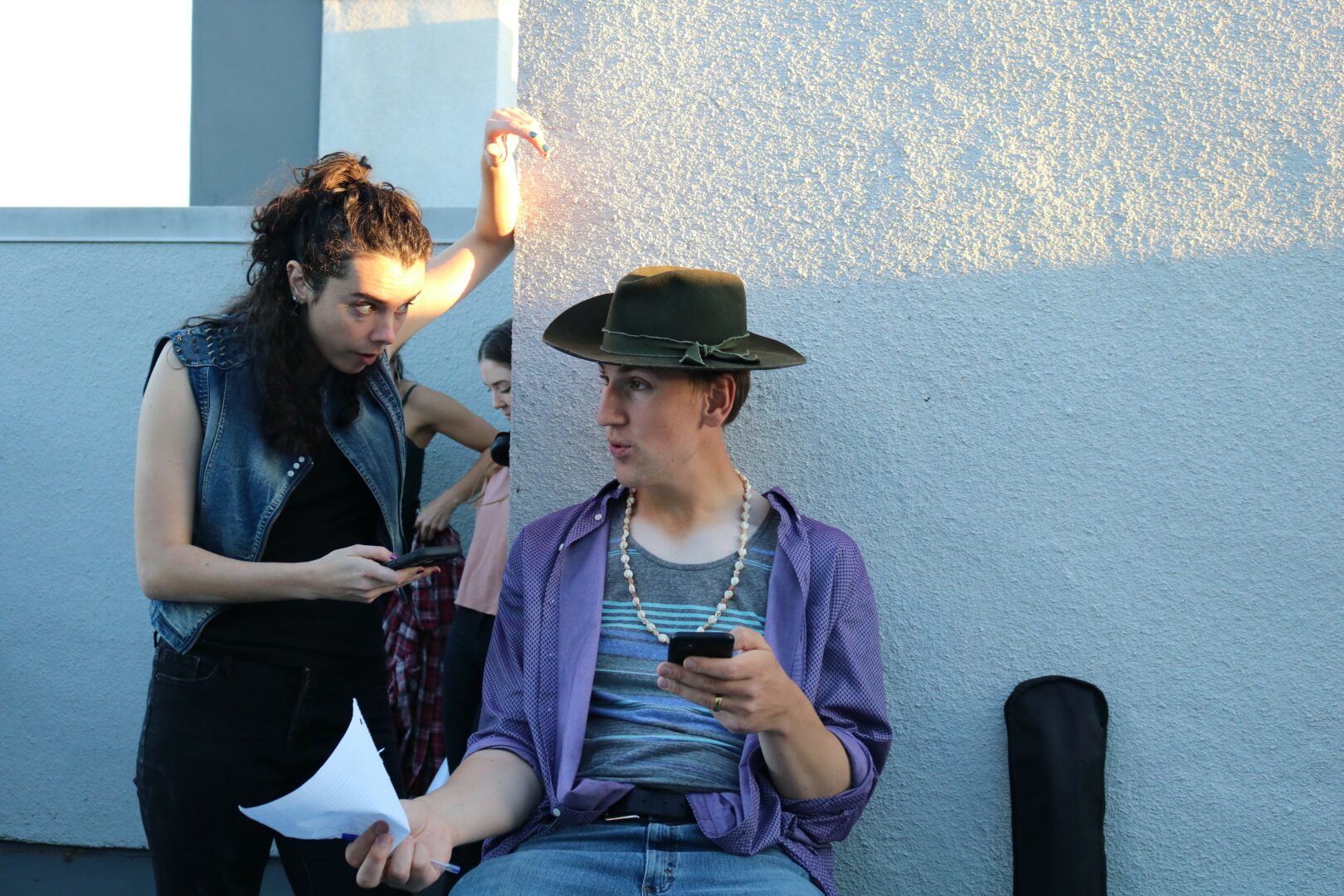
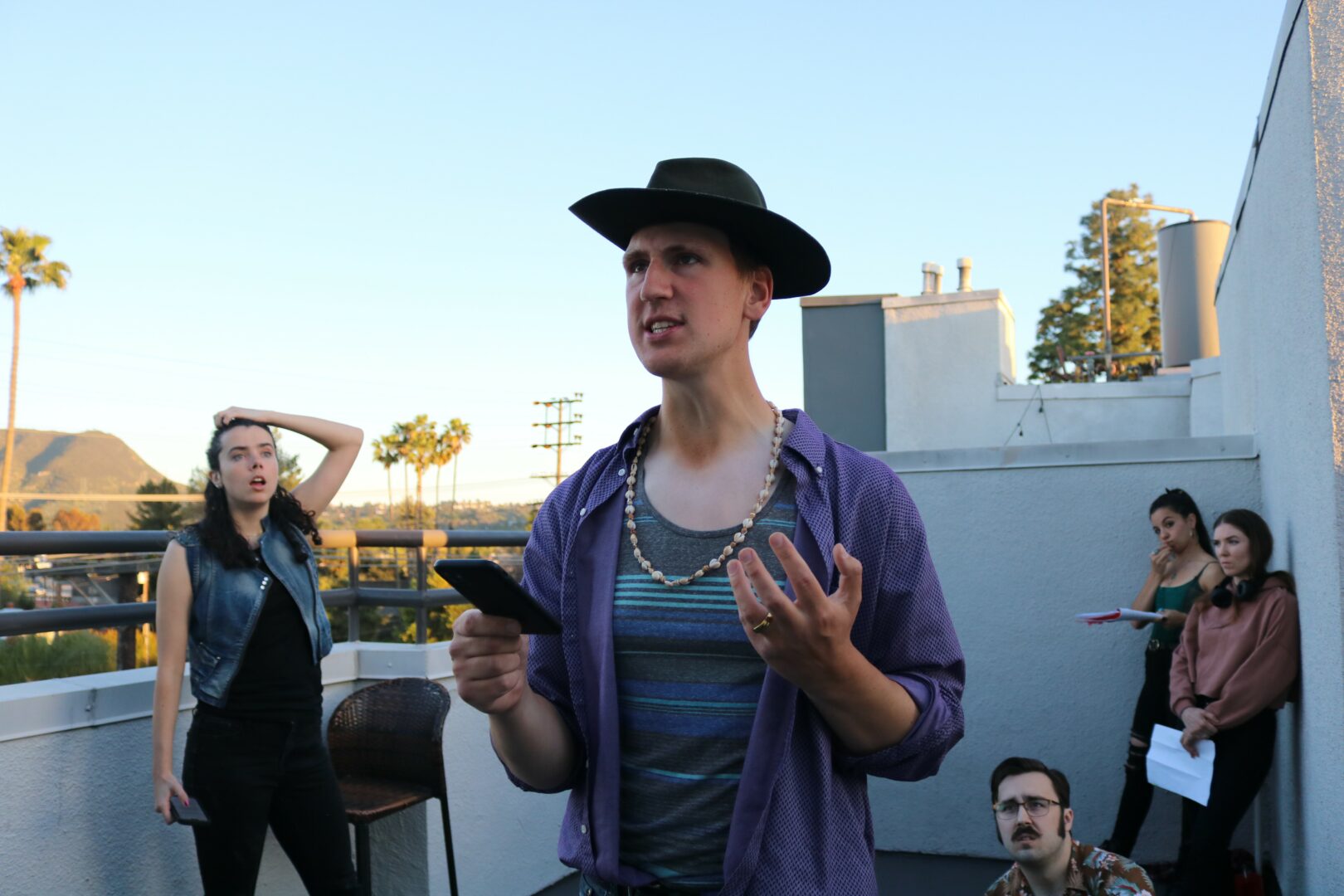
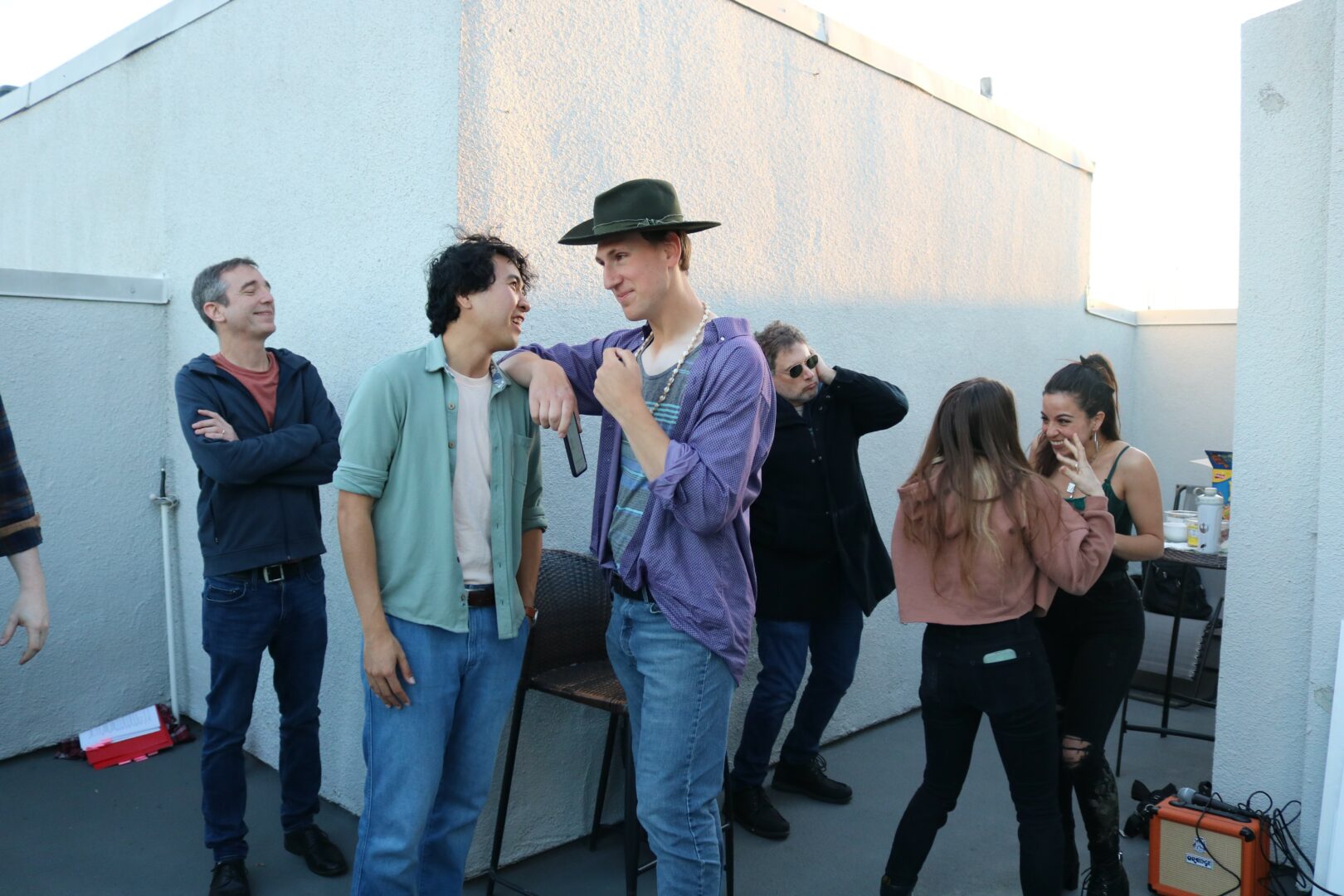
Image Credits
Personal Photo: image taken by John Baldwin
Additional Photo 1: The Cast of A Midsummer Night’s Dream – The Fairyland Experience (2023)
Additional Photo 2: Jesse Baxter as Lysander with Sabrina Harms as Puck (2023)
Additional Photo 3: Jesse Baxter as Lysander with Daria Good as Hermia (2023)
Additonal Photo 4: Jesse Baxter as Mercutio with Chloe Baldwin as Romeo (2024)
Additional Photo 5: Jesse Baxter as Mercutio with Chloe Baldwin as Romeo and Dakota West as Benvolio (2024) – also pictured, Alessandra Mañon (Juliet) and Victoria Sanders (Nurse)
Additional Photo 6: Jesse Baxter as Mercutio with William Chhit as Paris, Victoria Sanders as Nurse, Alessandra Mañon as Juliet, Paul G. Lyons as DJ, and Anton Nassif as Lord Capulet (2024)
so if you or someone you know deserves recognition please let us know here.

